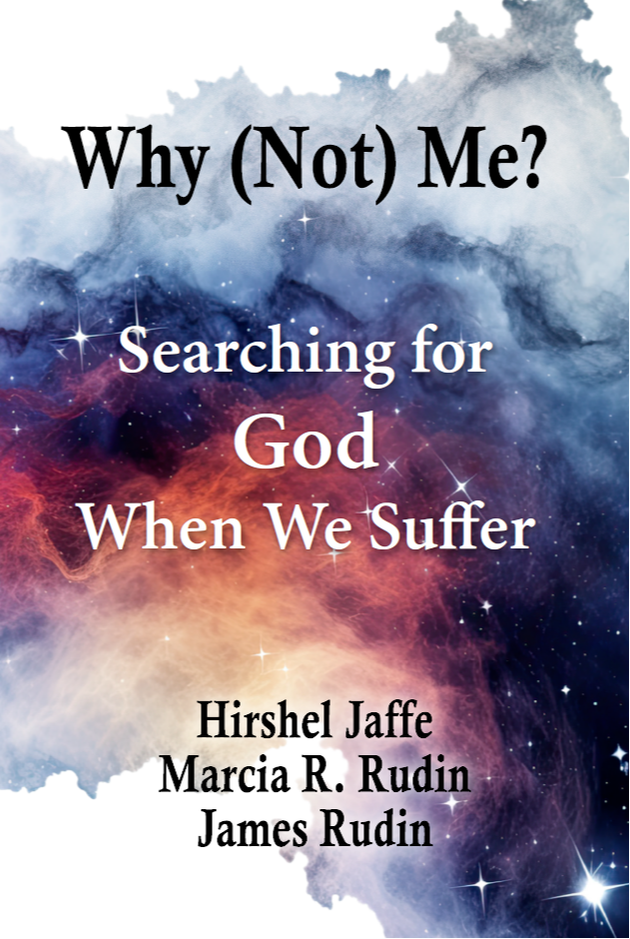|
In 1982, Rabbi Hirshel Jaffe, a fit Marathon runner, is diagnosed with a rare form of cancer, Hairy Cell Leukemia, for which at that time there is no known treatment. Jaffe and his best friend Rabbi James Rudin tell the inspirational story of Hirshel’s agonizing physical and psychological struggle with his illness and how he miraculously overcomes it.
While over the years since Jaffe’s ordeal there have been medical advancements in the treatment of Hairy Cell Leukemia as with all other forms of cancer, the psychological problems and theological issues raised when Hirshel learns of his illness are still relevant today: Why me? Hirshel asks. Or, rather, Why Not Me? Why did I have to suffer and face death? Why does anyone have to suffer? What kind of God causes suffering or, at best, allows it? What should we expect of God? Why is there evil in the world? How can we cope with it or overcome it? What is our best response to it? What, if anything, can we learn from it? Who comforts someone whose profession, a rabbi, is to comfort others? Who comforts the comforter? The possible answers to these questions from the Jewish tradition that Jaffe and Rabbi James and Marcia Rudin offer show how astonishingly relevant Judaism is in understanding human psychology and responding to the existential problems we have faced since the beginning of human life: What does Judaism say about God’s role in suffering and comforting? About the importance of friendship? About visiting the ill? About the efficacy of prayer? About how much and what kind of medical treatment should be administered? About death and the process of dying? About afterlife? |
READING GROUP GUIDE
- What effect do you think Hirshel’s illness had on his young children? On his marriage?
- How important was the Rudins’ friendship to Hirshel throughout his ordeal? How important are your friends to you, especially in times of crises?
- Would you have chosen the difficult path of experimental treatments with their potential harmful side effects if faced with a serious illness?
- Hirshel and his wife Judi frequently called upon their senses of humor to help them through their ordeal. How important is humor in facing life’s challenges?
- In the book’s Epilogue, Hirshel advises the reader to “Hang on to your fighting spirit”. How important was Hirshel’s competitive spirit and determination as manifested in his marathon running for dealing with his illness?
- In the book’s Epilogue, Hirshel advises the reader to “Search for meaning from your adversity”. Do you think there is a higher meaning in adversity? If so, what is it?
- Hirshel often resorted to prayer to gain strength to face his ordeal. Do you believe in the power of prayer? Why or why not?
- Would your religion comfort you if you were faced with a potentially fatal illness as Hirshel was? Why or why not? How important is religion in your life?
- Do you believe God controls the circumstances of our lives? If so, why does God allow suffering?
© 2017-2024 | Marcia R. Rudin | All rights reserved.
Website by Stage Door Designs
Website by Stage Door Designs



